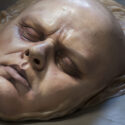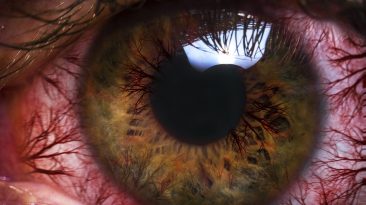One second you are out cold. The next, you’re on the operating table. In the middle of heart surgery. Welcome to your most terrifying nightmare. What happens when anesthesia doesn’t work? Would you feel everything that was going on with your body? And why wouldn’t you be able to tell your surgeon you’re awake?
For 170 years, anesthesia has enabled countless life-saving surgeries without pain. Before that, your surgeon would give you numbing agents like alcohol or opium. They weren’t as effective, of course. There are four main types of anesthesia. Regional and local anesthetics numb parts of your body. But you remain conscious and aware.
The other types are sedation and general anesthesia. These are used in operations with different levels of invasiveness, from a routine colonoscopy to a quadruple bypass. They render you completely unconscious. But sometimes things go sideways. And now you’re in the middle of a highly invasive heart operation, about to wake up to your own horror movie.
At first, your eyes wouldn’t be fully open. But you’d hear all the noises around you. Doctors talking, equipment beeping and your thoughts getting louder in your head. As you gain more consciousness, the bright lights above you would be blinding. And you would become aware of the tube in your mouth connected to a ventilator.
Naturally, you’d be confused and a bit dazed. You might think the surgery was over. But as you lower your eyes to your chest, you would see the doctor cleaning your skin. They are about to make the first incision. You’d start to panic and try to sit up. But you wouldn’t be able to lift a finger. It would feel like someone was holding you down. You’d be stuck.
What you’d be experiencing is anesthesia awareness. That’s when you wake up during surgery. And with your complex heart surgery lasting three to six hours, get ready for an excruciating time. The doctors would cut straight down the center of your chest wall. And just as in your worst fears, you’d feel everything.
Intense pain would tear through your body. You’d try to scream but wouldn’t be able to. Maybe you could twitch your leg. But the doctors would assume this was a muscle contraction, and they’d hold it down. Your heart rate wouldn’t increase because your heart isn’t beating. A heart-lung bypass machine is moving the blood away from your heart.
Now, they’d cut into your breastbone and open your rib cage. The pain would be so intense that you’d momentarily dip back out of consciousness. When you wake back up after only a few seconds, you’d feel like you are suffocating. The ventilator is pumping your lungs artificially. So no matter how much stress or anxiety you feel, your body isn’t in control.
This happened in one case of a woman who woke up during abdominal surgery. Her general anesthesia wore off, but she remained somewhat paralyzed. This led to her having an out-of-body experience. This would be for the best case scenario for you too. The sounds of the operating room would drift away. The pain and fear too. For a moment, you’d feel warm and safe. Maybe you’d even feel the presence of something divine.
But all the pain could come spiraling back. After all that stress and trauma, you could experience a heart attack. Now, your life would be on the line. Lucky for you, the doctors would stabilize you. Your surgeon would successfully bypass the blocked artery in your heart. Finally, this nightmare of a surgery would be over.
But the entire experience wouldn’t be something you could walk away from. You could develop post-traumatic stress disorder or anxiety. Maybe even a phobia of lying down flat on a bed. Many things would suddenly bring back painful memories.
Thankfully, anesthesia awareness only affects about one in 19,000 individuals. And for most of those impacted, it’s not as painfully traumatic as you just experienced in our hypothetical scenario.
Sources
- “Coronary Artery Bypass Graft (CABG) – How It’s Performed”. 2017. nhs.uk.
- “Waking Up During Surgery – Made For This Moment”. 2021. asahq.org.
- “Man Wakes During Surgery: ‘My Worst Nightmare’ “. Linda Carroll. 2012. nbcnews.com.
- “How Does Anesthesia Work? An Expert Explanation”. 2019. sgu.edu.
- “What To Expect When You’Re Having Open Heart Surgery | Premier Health”. 2021. premierhealth.com.



























